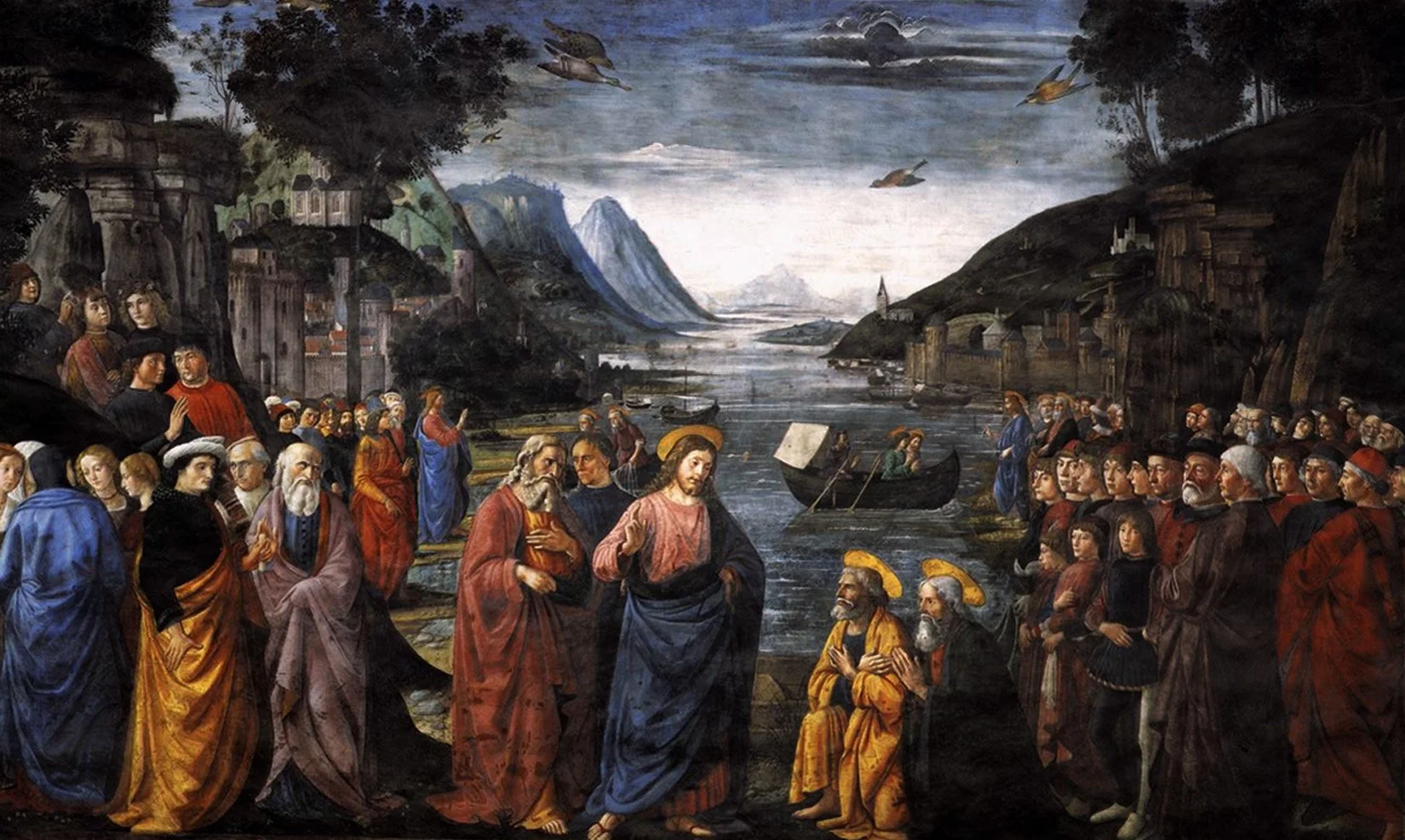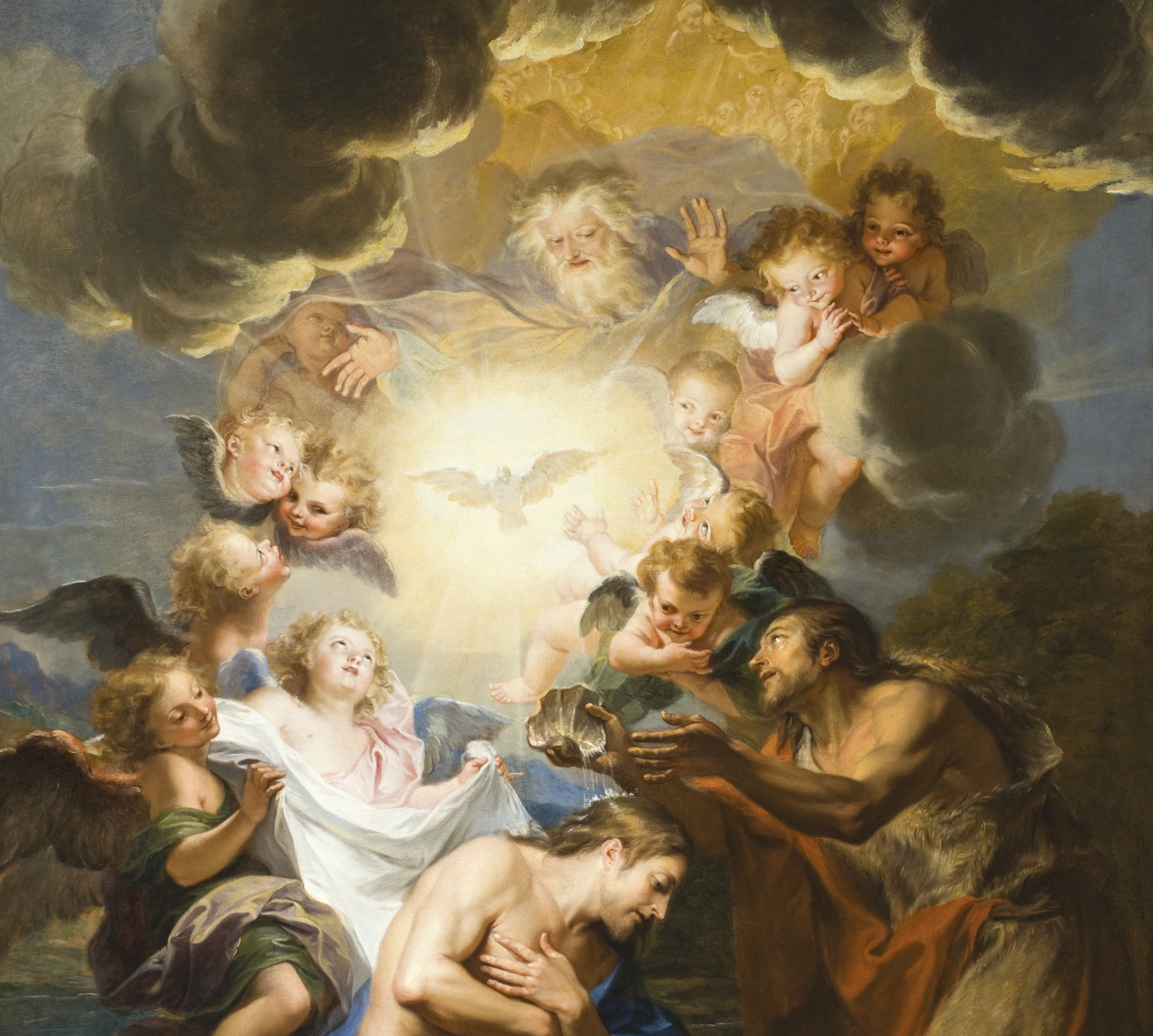
The Daily Word
Get the Daily Word in Your Inbox!
Called to Be One
Unity is something that all Christians ought to pray for and help realize. Saint Paul tells the Corinthians to strive for unity because they seemed to have lost sight of what was most important. They seemed to be starting to form factions and cliques. We are not to be followers of any religious leader, priest, or bishop — we are to be followers of Christ and anyone who does not preach and lead in the name and way of Christ is really leading others to themselves. Sometimes we forget this. Sometimes we preach and teach and evangelize but we fail to remember that we ought to lead them to a personal relationship with Christ and not to our personal following. We as Christians must follow Christ and only Christ for in Him we are one.
“I urge you, brothers and sisters, in the name of our Lord Jesus Christ, that all of you agree in what you say,
and that there be no divisions among you,
but that you be united in the same mind and in the same purpose.”1 Corinthians 1:10
Unity is something that all Christians ought to pray for and help realize. Saint Paul tells the Corinthians to strive for unity because they seemed to have lost sight of what was most important. They seemed to be starting to form factions and cliques. We are not to be followers of any religious leader, priest, or bishop — we are to be followers of Christ and anyone who does not preach and lead in the name and way of Christ is really leading others to themselves. Sometimes we forget this. Sometimes we preach and teach and evangelize but we fail to remember that we ought to lead them to a personal relationship with Christ and not to our personal following. We as Christians must follow Christ and only Christ for in Him we are one.
We must remember that it is Jesus who first calls us. In the Gospel we hear Jesus calling the first Apostles. He goes to the Sea of Galilee and finds fisherman and He tells them that if they follow Him, He will make them fishers of men. They leave behind their nets and followed Him. You see, Jesus comes to us in the ordinariness of life. He comes to meet us at our places of work, at our homes, at places where we find comfort, and He calls out to us and invites us on a journey that will forever change our lives. Jesus invites us to share in the very life of God — God who is three Persons in One God.
When we are baptized, we receive the gift of sanctifying grace, which is a share in God’s life, a share in that Divine Community of Love, the gift that allows us to dare share in the divinity of Christ, who humbled Himself to share in our frail humanity. So we must remember that we who are baptized are to be one just as God is One — Father, Son, and Holy Spirit. Jesus comes to us today and calls us, inviting us to be His fishermen who will cast our nets into the depths of society — to the poor, the marginalized, the forgotten, the outcast — and to share with all the Good News of His love and mercy. Let us pray to God to increase within us the desire to be one and to grant us the courage to respond generously to His call.
Called to Be Holy
As we enter into Ordinary Time we recall the Baptism of the Lord in whom we are baptized. The Lord was baptized so that He might sanctify the waters, preparing it for our baptism, our exodus from slavery to freedom, leaving behind our identity as unredeemed sinners and rising up as sons and daughters of the Father. The moment we emerge from those living waters, the Father affirms us as His beloved, tells us He is pleased with us, and sets us apart from the others, sanctifying us, making us holy so that we might be one with Him and sanctify the world by our witness.
“To you who have been sanctified in Christ Jesus, called to be holy, with all those everywhere who call upon the name of our Lord Jesus Christ, their Lord and ours.”
1 Corinthians 1:2
As we enter into Ordinary Time we recall the Baptism of the Lord in whom we are baptized. The Lord was baptized so that He might sanctify the waters, preparing it for our baptism, our exodus from slavery to freedom, leaving behind our identity as unredeemed sinners and rising up as sons and daughters of the Father. The moment we emerge from those living waters, the Father affirms us as His beloved, tells us He is pleased with us, and sets us apart from the others, sanctifying us, making us holy so that we might be one with Him and sanctify the world by our witness.
To be made holy means to be set apart, and we who are baptized are set apart by and for God. Before our baptism we belonged to the world, to death, to the grip of the enemy. After our baptism, God the Father claims us as His own, placing us behind His standard, transforming our natural end to a supernatural one — eternal life and sharing in the very life of God. Because Jesus went down into the water we dare to ask for such a gift. To this John the Baptist bore witness. John the Baptist was the forerunner of Jesus, the one who went before the Him to “prepare His way,” the one whose entire life pointed to the “Lamb of God, who takes away the sins of the world” for he said that he baptized people with water so “that he might be made known to Israel,” He who is the Son of God.
As baptized Christians, we are called to put on Christ, but also to bear witness as John the Baptist had done so. We are called to proclaim Jesus as the Son of God and to make known to all peoples the Good News that He has come to take away the sins of the world, not by commanding an army, but by taking on our sins and placing them on the Cross, the cross that was meant for us, for “He who knew no sin was made sin for us so that we might become the righteousness of God in him” (2 Cor 5:21). Jesus undoes the disobedience of Adam with His obedience, fulfilling all righteousness, drawing all people to Himself so that we too might be in relationship with the Father.
So, brothers and sisters, we are called to be holy, to be set apart, to know whose we are, because we are no longer creatures whose end is death, but rather sons and daughters made for heaven, for relationship with God. So, by our baptism, the Father has already restored to us the identity lost in Adam — His beloved, but we must choose to reclaim this identity and live it out. The Lord calls us today. How will we respond?
Fulfilling All Righteousness
The Feast of the Baptism of the Lord marks the end of the Christmas season and ushers us into Ordinary Time. Do you remember your baptism? Chances are, if you are a cradle catholic, you probably do not as you were most likely baptized as an infant. However, if you were baptized as an adult, I am sure it was quite a moving experience for you. Today we celebrate the baptism of Our Lord, which may seem odd since the point of baptism is the forgiveness of sins and birth into the life of God. Jesus is God and had no sin so baptism really was not necessary, but He insisted so that sinners might live and all righteousness might be fulfilled.
“And a voice came from the heavens, saying,
‘This is my beloved Son, with whom I am well pleased.’”
Matthew 3:17
The Feast of the Baptism of the Lord marks the end of the Christmas season and ushers us into Ordinary Time. Do you remember your baptism? Chances are, if you are a cradle Catholic, you probably do not as you were most likely baptized as an infant. However, if you were baptized as an adult, I am sure it was quite a moving experience for you. Today we celebrate the baptism of Our Lord, which may seem odd since the point of baptism is the forgiveness of sins and birth into the life of God. Jesus is God and had no sin so baptism really was not necessary, but He insisted so that sinners might live and all righteousness might be fulfilled.
The Church Fathers and Doctors of the Church tell us that for us going into the waters of baptism cleanses us and gives us the gift of sanctifying grace, but when Jesus went into the water He sanctified the waters so that we might be made clean by it. In getting baptized Jesus humbled and emptied Himself so that He might take on our sins and fill us with His own life. All that God does is for us. He created the heavens and the earth for us. He sent His Son for us. He suffered for us. He died for us. He rose from the dead for us. He sent the Spirit for us. In His baptism, Jesus made it possible for us to once again walk with God for all eternity. God revealed to us who He was once again at Jesus’s baptism, that Our God is three Divine Persons — Father, Son, and Holy Spirit — in One God, a relational God, a God of communion, in whose life we now share by our baptism.
When John tried to stop Jesus from getting baptized by him, He told him that he must so that all righteousness be fulfilled. What exactly is this “righteousness?” St. John Chrysostom says that righteousness is “the fulfilling of the commandments.” And the Lord taught that the greatest command is to love, and since He is love itself, then to fulfill all righteousness is to fulfill the Law, which then is to put on Christ, to be in right relationship with God, to be in communion with God. And Jesus fulfilled this righteousness by doing the will of His Father perfectly.
We who are baptized are baptized in Christ and in His life and death. As a result, we become adopted sons and daughters of the Father, true coheirs to eternal life. What a gift! So, then, brothers and sisters, let us give thanks to God for having so loved us. May we thank God for the gift of the Lord’s baptism in which we are baptized, opening up for us life eternal.



